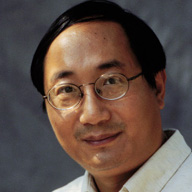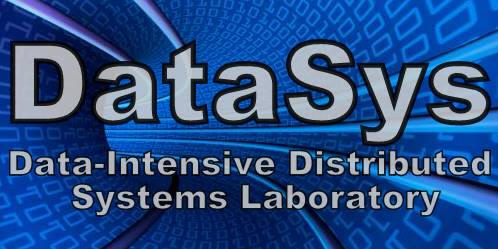CFP (TXT, PDF) | News | Topics | Dates | Submission | Organization | Program | Sponsors
6th Workshop on Many-Task Computing on Clouds, Grids, and Supercomputers (MTAGS) 2013
Co-located with Supercomputing/SC 2013Denver Colorado -- November 17th, 2013
Panel: Many-Task Computing meets Big Data
Location: Roomm 502
Sunday, November 17th, 2013
4PM - 5:15PM
Slides
Panel Abstract
Applications and experiments in all areas of science are becoming increasingly complex and more demanding in terms of their computational and data requirements. Some applications generate data volumes reaching hundreds of terabytes and petabytes. As scientific applications become more data intensive, the management of data resources and dataflow between the storage and compute resources is becoming the main bottleneck. Analyzing, visualizing, and disseminating these large data sets has become a major challenge and data intensive computing is now considered as the ''fourth paradigm'' in scientific discovery after theoretical, experimental, and computational science. Some call this data-intensive computing, while others call it Big Data.
Many-Task Computing (MTC) is a computing model that aims to bridge the gap between high-performance computing (HPC) and high-throughput computing (HTC). MTC denotes high-performance computations comprising multiple distinct activities, coupled via data movent operations. Tasks may be small or large, uniprocessor or multiprocessor, compute-intensive or data-intensive. The set of tasks may be static or dynamic, homogeneous or heterogeneous, loosely coupled or tightly coupled. The aggregate number of tasks, quantity of computing, and volumes of data may be extremely large. The data-flow focused nature of many MTC-optimized systems make them a good fit to address many of the challenges brought forward by Big Data. This panel will attempt to address how many-task computing can address the data-intensive computing challenges of today and tomorrow at increasingly larger scales.
Panelists
Professor and Director, Division of Biological Sciences & Computation Institute, University of Chicago
Chair and Professor, Computer Science, Illinois Institute of Technology
Assistant Professor, Computer Science and Informatics, Indiana University
Assistant Professor, Faculty of Engineering, Mathematics and Computer Science, Delft University of Technology, the Netherlands
Moderator
TBA
Panelists Biographies
 Dr.
Robert Grossman is the Chief Research Informatics
Officer (CRIO), the Director of the Initiative in Data Intensive
Science and a Professor in the Division of Biological Sciences
at the University of Chicago. he is also a Core Faculty and
Senior Fellow at the Institute for Genomics and Systems Biology
(IGSB) and the
Computation Institute.
His research group focuses on big data, data science,
bioinformatics, cloud computing and related areas. He is also
the Founder and a Partner of
Open Data Group. Open Data Group has provided analytic
services so that companies can build predictive models over big
data since 2002. He is the Chair of the not-for-profit
Open Cloud
Consortium, which develops and operates clouds to support
research in science, medicine, health care, and the environment.
He can be reached via Linkedin
Linkedin
or
Google+. Dr.
Robert Grossman is the Chief Research Informatics
Officer (CRIO), the Director of the Initiative in Data Intensive
Science and a Professor in the Division of Biological Sciences
at the University of Chicago. he is also a Core Faculty and
Senior Fellow at the Institute for Genomics and Systems Biology
(IGSB) and the
Computation Institute.
His research group focuses on big data, data science,
bioinformatics, cloud computing and related areas. He is also
the Founder and a Partner of
Open Data Group. Open Data Group has provided analytic
services so that companies can build predictive models over big
data since 2002. He is the Chair of the not-for-profit
Open Cloud
Consortium, which develops and operates clouds to support
research in science, medicine, health care, and the environment.
He can be reached via Linkedin
Linkedin
or
Google+. |
 Dr.
Xian-He Sun is the director of the SCS laboratory.
He is the Chair and a professor of the Department of Computer
Science at the Illinois Institute of Technology, an IEEE fellow
and a guest faculty in the Division of Mathematics and Computer
Science at Argonne National Laboratory. His current research
interests include parallel and distributed processing, memory
and I/O systems, software system for Big Data applications, and
performance evaluation and optimization. Dr.
Xian-He Sun is the director of the SCS laboratory.
He is the Chair and a professor of the Department of Computer
Science at the Illinois Institute of Technology, an IEEE fellow
and a guest faculty in the Division of Mathematics and Computer
Science at Argonne National Laboratory. His current research
interests include parallel and distributed processing, memory
and I/O systems, software system for Big Data applications, and
performance evaluation and optimization. |
 Dr.
Judy Qiu is an Assistant Professor in the School of Informatics and
Computing at Indiana University. Her research interests are on
data-intensive computing at the intersection of Cloud and multicore
technologies with an emphasis on life science applications using
MapReduce and traditional parallel and distributed computing approaches.
Dr. Qiu leads the SALSA projectin the Pervasive Technology Institute at Indiana University. Data
intensive science, Cloud computing and Multicore computing are
converging and will revolutionize next generation of computing in
architectural design and programming challenges. They enable the
pipeline: data becomes information becomes knowledge becomes wisdom. in the Pervasive Technology Institute at Indiana University. Data
intensive science, Cloud computing and Multicore computing are
converging and will revolutionize next generation of computing in
architectural design and programming challenges. They enable the
pipeline: data becomes information becomes knowledge becomes wisdom. Dr.
Judy Qiu is an Assistant Professor in the School of Informatics and
Computing at Indiana University. Her research interests are on
data-intensive computing at the intersection of Cloud and multicore
technologies with an emphasis on life science applications using
MapReduce and traditional parallel and distributed computing approaches.
Dr. Qiu leads the SALSA projectin the Pervasive Technology Institute at Indiana University. Data
intensive science, Cloud computing and Multicore computing are
converging and will revolutionize next generation of computing in
architectural design and programming challenges. They enable the
pipeline: data becomes information becomes knowledge becomes wisdom. in the Pervasive Technology Institute at Indiana University. Data
intensive science, Cloud computing and Multicore computing are
converging and will revolutionize next generation of computing in
architectural design and programming challenges. They enable the
pipeline: data becomes information becomes knowledge becomes wisdom.
|
 Dr.
Alexandru Iosup received his Ph.D. in Computer Science in 2009 from the
Delft University of Technology (TU Delft), the Netherlands. He is
currently an Assistant Professor with the Parallel and Distributed
Systems Group at TU Delft. He was a visiting scholar at U. Dortmund,
U.Wisconsin-Madison, U. Innsbruck, and U.California-Berkeley in 2004,
2006, 2008, and 2010, respectively. In 2011 he received a Dutch NWO/STW
Veni grant (the Dutch equivalent of the US NSF CAREER.) His research
interests are in the area of distributed computing; keywords: cloud
computing, grid computing, peer-to-peer systems, scientific computing,
massively multiplayer online games, scheduling, scalability,
reliability, performance evaluation, and workload characterization. Dr.
Iosup is the author of over 50 scientific publications and has received
several awards and distinctions, including best paper awards at IEEE
CCGrid 2010, Euro-Par 2009, and IEEE P2P 2006. He is the co-founder of
the Grid Workloads, the Peer-to-Peer Trace, and the Failure Trace
Archives, which provide open access to workload and resource operation
traces from large-scale distributed computing environments. He is
currently working on cloud resource management for e-Science and
consumer workloads. Dr.
Alexandru Iosup received his Ph.D. in Computer Science in 2009 from the
Delft University of Technology (TU Delft), the Netherlands. He is
currently an Assistant Professor with the Parallel and Distributed
Systems Group at TU Delft. He was a visiting scholar at U. Dortmund,
U.Wisconsin-Madison, U. Innsbruck, and U.California-Berkeley in 2004,
2006, 2008, and 2010, respectively. In 2011 he received a Dutch NWO/STW
Veni grant (the Dutch equivalent of the US NSF CAREER.) His research
interests are in the area of distributed computing; keywords: cloud
computing, grid computing, peer-to-peer systems, scientific computing,
massively multiplayer online games, scheduling, scalability,
reliability, performance evaluation, and workload characterization. Dr.
Iosup is the author of over 50 scientific publications and has received
several awards and distinctions, including best paper awards at IEEE
CCGrid 2010, Euro-Par 2009, and IEEE P2P 2006. He is the co-founder of
the Grid Workloads, the Peer-to-Peer Trace, and the Failure Trace
Archives, which provide open access to workload and resource operation
traces from large-scale distributed computing environments. He is
currently working on cloud resource management for e-Science and
consumer workloads. |
 Data-Intensive Distributed Systems Laboratory
Data-Intensive Distributed Systems Laboratory